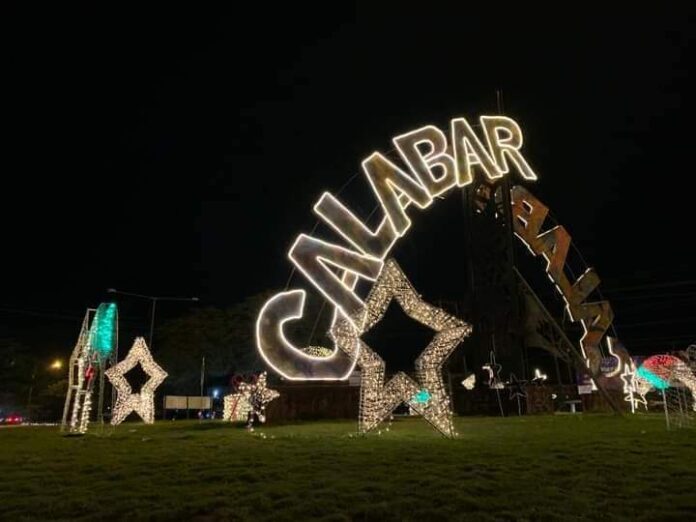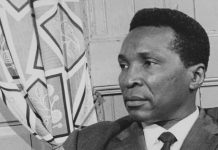I have been pondering and investigating the meaning of ‘Atakpa’ found in Calabar – Cross River State for quite a while. I now share my thoughts and insights with the hope of being validated or controverted in part or whole to assist us all in unraveling and confirming its true meaning.
I must say upfront that I am not too clear or comfortable with the accounts in some historical circles that have attempted to link Atakpa somehow to the historical ‘Akpa of Jukun Kingdom’.
That’s not to say I completely doubt the possibility of the Jukuns having had interactions with the people of Akwa Akpa (Calabar). However, there are several loops in such accounts that would actually fire up more doubts than bring consensus or agreement.
For instance, where did the ‘Akpa Junkuns’ suddenly disperse to without any remnant or trace of its people, language or settlements in Calabar vicinity? The Efuts we already know are a part of the Balondo ba konja people. The Quas are a subset of the larger Ejagham superset. The Efiks have their clear and well-documented history.
We may not however be able to discount the fact of the possible role the Jukun warriors played as middle men in supplying slaves to the southern shipment ports of which Calabar was the main port of export. But that may be how far it went in my informed view, and there were also several middle men in the chain.
The Atakpa of Calabar in my rationalization could have been derived from Efik Language based on its geographical location and the history that supports the name:
‘Ata – akpa’ meaning ‘who eats dies’ in Efik Language.
It is derived from the fact that there were much of ‘esere bean’ plants at the place and these were usually very poisonous. They were used then only in the solemn occasion of proving innocence or guilt in cases of witchcraft accusations.
The accused witch/wizard is usually administered the esere seed orally to chew and swallow. If the person eventually dies then s/he is deemed to have been guilty of witchcraft. The person is deemed innocent if s/he otherwise survives. In hindsight, this method was not foolproof but a trial and error gambling with people lives. The esere seed was later discovered to be quite poisonous on its own. Most who took it ended up dying from poisoning rather than the witchcraft they were falsely/rightly being accused of. The innocent could die for nothing with the untrue branding of being a witch/wizard, whereas the guilty could on the other hand be lucky enough to survive the poison and live as an innocent.
It was also discovered that some started using this as a tool of vendetta and power play against real and perceived enemies or competitors by throwing such accusations at them and bringing them forth for administering of the oath.
This was one of those evil practices that were stopped during colonial intervention besides the now famous stopping of the killing of twins.
That kind of practice was not new even to the British because back through the ages they had a similar but slightly different practice. In their case the suspected witch/wizard is thrown into a very very deep pond of over 50 metres.
If you hit the floor and come back up alive then you are innocent. If you otherwise die and float back up then you were guilty. Consideration was never given to the person’s survival abilities under such conditions.
In the context of Efik language origin of Atakpa, some have as well argued that the name may be connected to Akpa (long river – Calabar River) which was the route by which the Efiks traveled to settle in the upland of Calabar. Whereas, others contend that Atakpa of Calabar could have been derived from ata-akpa (real first) settlement of Efiks in upland Calabar. But this view may be contentious when weighted against the historical realities of Old Calabar (Bayside), Duke Town, Obutong and so on.
Other related but different strands of opinion on the subject matter give credence to the possibility of ‘Atakpa’ being derived from Qua language same way as ‘Abakpa’ – the name by which the Efiks refer to the Quas is derived from Qua language. But, there is yet to be any clarity or consensus validating this strand of thoughts.
Meanwhile, the intriguing thing in all of this is that the people up north the Cross River at greater Ikom have Atakpa as a name for persons and also places. In the instances of places, the Olulumo (Okuni) people of Ikom traditionally have four villages in their town with each having a sobriquet attached to it. These are: ‘Effi a’Mgbagbang,’ ‘Emorro Atakpa’, ‘Iyami Ekpiri’ and ‘Omon Ikpale’.
The point of interest there is the appearance of ‘Atakpa’ as a sobriquet of Emorro one of the key villages of the Olulumo people. It may be interesting to also note that the Olulumo people have the sobriquet of ‘Eburutu’ attached to their name thus: ‘Olulumo Eburutu’.
I am happy to receive enlightening commentary on this to help us all have a clearer and consensual understanding of the true meaning and origin of ‘Atakpa’ within the historical, cultural and anthropological space of Calabar in particular and Cross River State in general.
God bless!
Dr. Ceejay Ojong
Abuja.
First published:
24th September 2021
Updated and reproduced:
16th June 2024.










